 Please consider donating to AFFMA on behalf of your friends and relatives this year. While donations of any amount are greatly appreciated, a gift of $35 will pay the visa application fee for one refugee. Unlike most charitable organisations, AFFMA is run entirely by volunteers. Every cent of your donation will go to keeping our door open to the refugees that we serve. This year, give a refugee a chance for a new life in Australia.
Please consider donating to AFFMA on behalf of your friends and relatives this year. While donations of any amount are greatly appreciated, a gift of $35 will pay the visa application fee for one refugee. Unlike most charitable organisations, AFFMA is run entirely by volunteers. Every cent of your donation will go to keeping our door open to the refugees that we serve. This year, give a refugee a chance for a new life in Australia.
Donations can be made directly to AFFMA through PayPal by accessing the following link:
https://www.paypal.com/cgi-bin/webscr?cmd=_s-xclick&hosted_button_id=C9PXK25WLWR7J
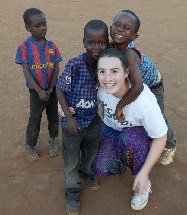 As someone who has volunteered for organisations small and large, responding to issues ranging from refugees to mental health, I can say without a doubt that volunteering is one of the most rewarding experiences you can have.
As someone who has volunteered for organisations small and large, responding to issues ranging from refugees to mental health, I can say without a doubt that volunteering is one of the most rewarding experiences you can have. The outcome of the US election on 08 November 2016 provoked shock and anger throughout the world. The prospect of a Trump presidency could not be more troubling for refugees and advocacy groups.
The outcome of the US election on 08 November 2016 provoked shock and anger throughout the world. The prospect of a Trump presidency could not be more troubling for refugees and advocacy groups.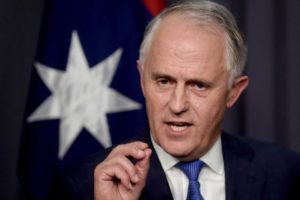 Prime Minister Malcom Turnbull stated that the refugee resettlement deal between Australia and the US is a “one-off agreement and it will not be repeated.” There is no word on the number of refugees being moved to the US, but the arrangement seeks to prioritise the “most vulnerable” families on Nauru.
Prime Minister Malcom Turnbull stated that the refugee resettlement deal between Australia and the US is a “one-off agreement and it will not be repeated.” There is no word on the number of refugees being moved to the US, but the arrangement seeks to prioritise the “most vulnerable” families on Nauru.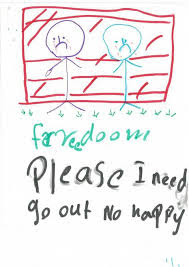 The United Nations Convention on the Rights of the Child (CRC) gives children a set of rights relating to their treatment, education and to their basic needs. The CRC is composed of 54 Articles that specify how children (under the age of 18) should be treated. Australia is one of many States that have signed and ratified this convention (in Australia’s case, this occurred in 1990). One of the basic fundamental principles of the CRC is to promote the best interests of the child as the primary consideration in all decisions that directly affect them. In doing so, the CRC amplifies the responsibility States take on by signing and ratifying CRC, ensuring they have an OBLIGATION to uphold EVERY child’s international rights.
The United Nations Convention on the Rights of the Child (CRC) gives children a set of rights relating to their treatment, education and to their basic needs. The CRC is composed of 54 Articles that specify how children (under the age of 18) should be treated. Australia is one of many States that have signed and ratified this convention (in Australia’s case, this occurred in 1990). One of the basic fundamental principles of the CRC is to promote the best interests of the child as the primary consideration in all decisions that directly affect them. In doing so, the CRC amplifies the responsibility States take on by signing and ratifying CRC, ensuring they have an OBLIGATION to uphold EVERY child’s international rights.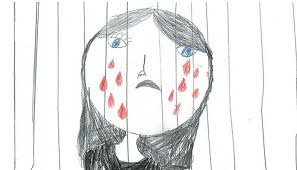 The domestic protections for unaccompanied/separated refugee and asylum seeker children vary across states and territories within Australia. The focal point of this section will outline the Immigration (Guardianship Children) (IGOC) Act 1946 (Cth) and Migration Act 1958 (Cth) (Migration Act).
The domestic protections for unaccompanied/separated refugee and asylum seeker children vary across states and territories within Australia. The focal point of this section will outline the Immigration (Guardianship Children) (IGOC) Act 1946 (Cth) and Migration Act 1958 (Cth) (Migration Act).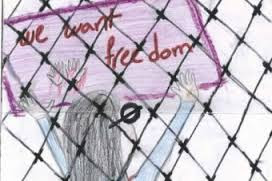
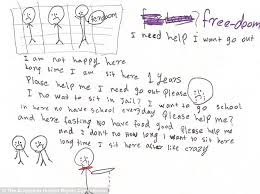
 We are seeking participants for a study examining language and communication in the context of Australian refugee applications and appeals, and policy. The study is being conducted by Laura Smith-Khan to meet the requirements of a Doctor of Philosophy (PhD) in Linguistics, under the supervision of Professor Ingrid Piller of the Department of Linguistics (ph:
We are seeking participants for a study examining language and communication in the context of Australian refugee applications and appeals, and policy. The study is being conducted by Laura Smith-Khan to meet the requirements of a Doctor of Philosophy (PhD) in Linguistics, under the supervision of Professor Ingrid Piller of the Department of Linguistics (ph:  To begin in November/ December this year, a commercial law firm (to be) is seeking a permanent Principal solicitor with a minimum of five (5) years experience and expertise in property law, family law and contract law. This is a commercial opportunity for a self-motivated lawyer who wants to set up a thriving, commercial, legal business but lacks the funds to do so. There will be a substantial office rent reduction (inclusive of electricity, water and cleaning services) in exchange for supervision of two junior lawyers who will undertake legal duties in the nominated areas of law. You will have your own locked office space. The office is situated in a prime position on King Street in Newtown with no law firms nearby.
To begin in November/ December this year, a commercial law firm (to be) is seeking a permanent Principal solicitor with a minimum of five (5) years experience and expertise in property law, family law and contract law. This is a commercial opportunity for a self-motivated lawyer who wants to set up a thriving, commercial, legal business but lacks the funds to do so. There will be a substantial office rent reduction (inclusive of electricity, water and cleaning services) in exchange for supervision of two junior lawyers who will undertake legal duties in the nominated areas of law. You will have your own locked office space. The office is situated in a prime position on King Street in Newtown with no law firms nearby.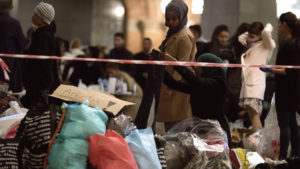 Discussion focusing on refugee and asylum seeker policy
Discussion focusing on refugee and asylum seeker policy

